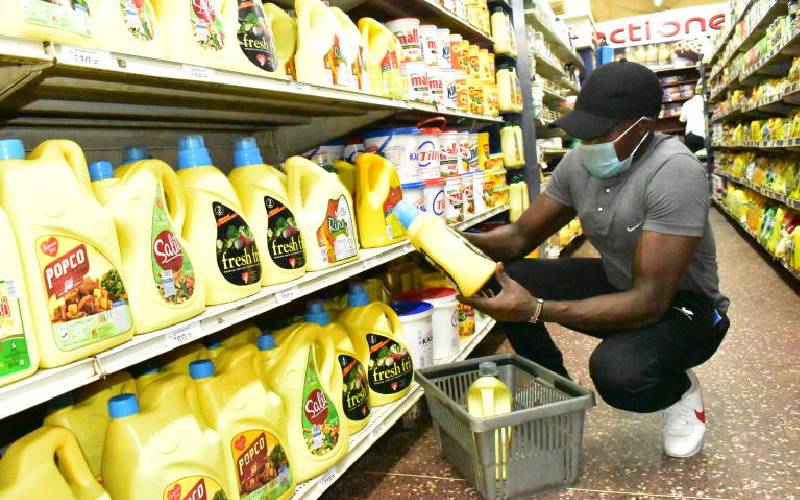If additional tariffs on raw commodities enacted last month go into force, Kenyans would have to dig deeper into their pockets to buy cooking oil and soap.
In their appeal before the High Court, oil companies say that they will be forced to pass on the higher cost to consumers.
They say that although the Kenya Association of Manufacturers (KAM) has been engaging the government to rectify the National Crops and Nuts Regulations, 2020, their plea has been ignored.
Bidco Africa, Pwani Oil, Golden Africa Kenya, Kapa Oils Refineries, United Millers, Darfords Industries, Giloil Company, Salwa Kenya, Mvita Oils, and MORL are among the companies that have sued the state.
The 2020 rule, according to court documents, went into effect last month and puts a 10% to 25% fee on coconuts, cashew nuts, macadamia nuts, groundnuts, castor beans, and sunflower.
The businesses believe that if the court does not lift the existing charges, they will be hampered in their operations.
The National Assembly, Agriculture and Livestock Cabinet Secretary Peter Munya, the Agriculture and Food Authority, and Attorney General Kihara Kariuki have all been sued.
They claim that the restrictions impose an additional 2% levy per consignment that enters the nation, which amounts to double taxation and is therefore illegal.
“The petitioners have come to this court under duress as a result of the first and second respondents’ decision to publish and enforce the unconstitutional, unlawful, and unreasonable Legal Notice No. 164 of 2020, namely The Crops (Nuts and Oil Crops) Regulations, 2020,” according to the court papers.
Manufacturers claim that the regulations jeopardize their survival as well as that of their employees who rely on them for a living. Oil companies also claim to spend between Sh5,000 and 25,000 for a manufacturer’s license, as well as between Sh1,000 and 10,000 for inspection costs.
Kenya is a net importer of edible oil raw ingredients and intermediates. According to the 2020 Economic Survey, Kenya produced 223,000 tonnes of vegetable oil in 2019, compared to 815,000 tonnes of local demand.



